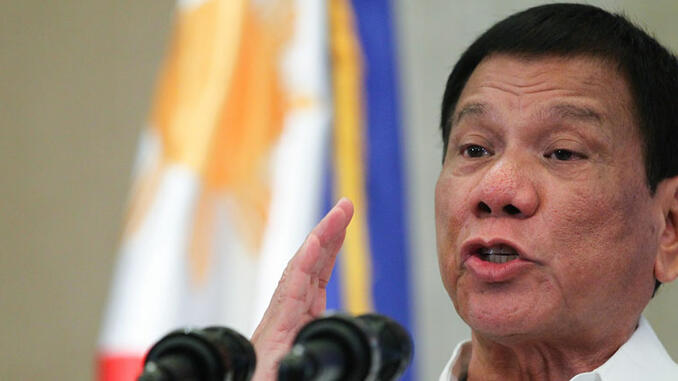
Corruption allegations against world leaders has been an incidental theme in the news as of late. From Lula da Silva, to Netanyahu, to Jacob Zuma, and to the investigations revolving around Donald Trump, all together show democratic governments making efforts to keep corruption under control among their leaders. In the news, one leader has even come under international investigation. On February 15th, the International Criminal Court announced it is holding a preliminary investigation of Filipino president Rodrigo Duterte and other government officials for crimes against humanity in his “war on drugs.”
Since coming to office in 2016, Duterte has waged a violent war on drug dealers and users. In the six months before Duterte came to office, police killings involving illegal drug use were a relatively small 68. During his time in office so far, 3,900 people involved in illegal drug use have been killed at the hands of police. In all, nearly 12,000 Filipinos have been killed in drug related violence since Duterte came to power. There were protests last August after one particular killing was recorded on security camera which showed police framing and then killing a 17-year-old drug suspect. The slaying came after Duterte promised to protect police from prosecution when killing drug suspects. Duterte has also bragged about killing criminals himself when he was mayor of Davao, further adding to the atmosphere that is ok to kill drug suspects.
International Criminal Court (ICC) prosecutor Fatou Bensouda said in a statement announcing the preliminary investigation that the inquiry would look at evidence of human rights abuse since Duterte has come to office. In her statement she said:
“The preliminary examination of the situation in the Philippines will analyse crimes allegedly committed in this State Party since at least 1 July 2016, in the context of the ‘war on drugs’ campaign launched by the Government of the Philippines. Specifically, it has been alleged that since 1 July 2016, thousands of persons have been killed for reasons related to their alleged involvement in illegal drug use or dealing. While some of such killings have reportedly occurred in the context of clashes between or within gangs, it is alleged that many of the reported incidents involved extra-judicial killings in the course of police anti-drug operations.”
The ICC can only take cases when a country’s own judicial system is unable or unwilling to pursue the cases themselves. This, a spokesman for Duterte, Harry Roque, said was not the case in the Philippines. “We view, of course, this decision of the prosecutor as a waste of the court’s time and resources,” he added in response to the investigation.
Duterte, himself, has also made an issue about why the ICC is choosing to go after his drug war, while ignoring the genocide against the Rohingyas in Myanmar. On the surface this calls on the credibility of the ICC, however, a more nuanced look at the situation in Myanmar shows why the ICC is unable to launch investigations there. Dr Champa Patel, head of the Asia program at the Royal Institute of International Affairs, writes, “Based on the documentation undertaken by human rights NGOs there is a strong case for ICC involvement in Myanmar however, unlike the Philippines, any progress on this front is difficult. Myanmar is not a party to the Rome Statute, so the court has limited jurisdiction over any crimes committed. Additionally, while the UN Security Council can refer situations to the ICC, it is highly unlikely China would allow this to happen in the case of Myanmar.”
While Duterte may wish to call into focus the ICC’s reputation as a distraction, the investigation is a healthy move to keep human rights violations in check. The announcement of a preliminary investigation is a positive first step.
